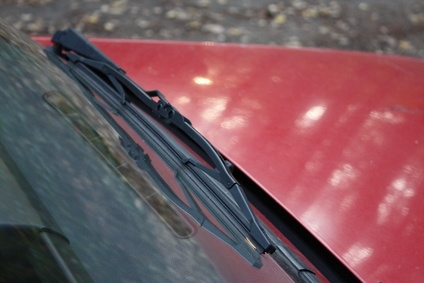
Each state has its own rules and regulations for windshields. According to Florida statute 316.2952, there are things you must know about your vehicle's windshield before driving in Florida. You will need to familiarize yourself with positioning, tinting rules, windshield wiper rules, as well as signage and toll-booth collection devices. Once you become familiar with these regulations and adhere to them, you will not find yourself receiving a traffic ticket for a windshield violation. Violation of these rules is considered a nonmoving violation in the state of Florida.
The windshield on your vehicle must be fixed in an upright position and equipped with safety glazing. The glazing material must conform to the federal safety-glazing material standard. Window tinting on your windshield is not allowed except for a strip at the top of the windshield, and this strip must not interfere with the driver's view.
There is to be no signage or covering attached to your windshield except for certificates or other papers that, by law, are to be displayed. A device used for payment of electronic tolls may be placed on the windshield below the rear-view mirror or just to the right or left of the mirror. The driver's view must never be obstructed by any signage or electronic device.
Your vehicle must be equipped with a device such as windshield wipers to clear off rain, snow, or other debris and moisture. These must be operable by the driver and kept in proper working order at all times.
Vehicles in Florida that are used for grove farming are exempt from these rules but must still have a windscreen to protect from insects, rain and wind if they are to be driven on roads at any point. Old military vehicles are also exempt but if you use the vehicle on a public road or highway you must ensure that you and your passengers are wearing eye protection that is approved by the Florida Department of Motor Vehicles.
In the state of Florida, windshield cracks and chips are repaired free of charge. According to Florida statute 627.7288, if you have comprehensive coverage on your vehicle your insurance company will pick up the tab for any repair or replacement that you may need. The law states that your deductible will be waived. In most cases, your insurance company will send someone to your home or office to replace or repair your windshield.